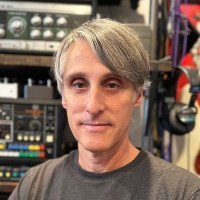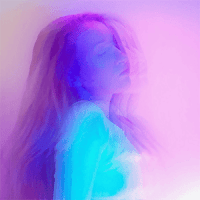A Renaissance Synthesizer








The Cherry Audio Elka-X synthesizer is based upon the legendary Synthex, a rare Italian analog synthesizer designed by Mario Maggi and manufactured by ELKA in the early eighties. Elka-X replicates the extraordinary character of the original synth without compromising sound or functionality, thoughtfully expanding its feature set and delivering the authentic Synthex experience at a price anyone can afford.
"If it had been built by a more prestigious manufacturer, and released at a more sensible price, the ELKA Synthex could possibly have rivaled the DX7 and kept analogue from being so swamped by digital." - Peter Forrest (1998), The A-Z of Analogue Synthesisers, Part One
The Synthex included a combination of uncommon and forward-looking features that stood out from other contemporary synthesizers, including highly stable digitally-controlled analog oscillators and a flexible four-pole multimode filter. Unlike most other popular synths utilizing CEM3320 filter chips in a lowpass-only configuration, the Synthex filter featured a 24 dB/oct lowpass mode, 6 and 12 dB/oct bandpass modes, and a 12 dB/oct highpass mode. Along with a powerful onboard analog chorus effect, this gave the Synthex a distinct and powerful tonality. It was multitimbral, with the ability to play two separate patches simultaneously, in either split or layer mode. It even included an innovative four-track sequencer with real-time recording and transposition.
As ELKA's primary market was home organs, they never gained a strong foothold in the professional synthesizer market. Sadly, the whirlwind of excitement generated by the 1983 release of Yamaha's DX digital synthesizers relegated this superb instrument to the sidelines, never to achieve the success it deserved.
By the mid-80s, ELKA made the last Synthex for Stevie Wonder, who used it for the distinctive bass tone on his single "Skeletons" from the 1987 album Characters. Other notable users of the Synthex included Geoff Downes of the supergroup Asia, Keith Emerson, Nick Rhodes of Duran Duran, Peter Howell of the BBC Radiophonic Workshop, and Jean-Michel Jarre, who used it extensively on Rendezvous and for his famed "laser harp" sound.

Each aspect of Elka-X has been precisely modeled upon Cherry Audio's pristine vintage Synthex. Every effort was taken to emulate the prized tone of the original's DCOs, dynamic filter, and stunning chorus. We've preserved the innovative sound-sculpting and performance features such as layering and keyboard split, and hugely improved the original's clunky step sequencer.

Once again, Cherry Audio has kept the soul of a classic alive while updating its feature set for modern studio environments. We've increased the polyphony, included mono and unison modes, and added velocity response that was absent from the original design. We've expanded the functionality of the filter and the LFOs, greatly extending the modulation options. We not only simplified the operation of the four-track step sequencer but added a complete arpeggiator with independent assignments for both layers.
Unique panel controls make it painless to exchange settings between layers, sequencer tracks, and even different presets. In addition to the chorus effect found in the original, Elka-X adds studio-quality echo and reverb stereo effects, with independent settings for both layers. With additional touches such as chord memory, over 600 pro patches, and flexible MIDI mapping, Cherry Audio's Elka-X brings the authentic and expanded Synthex experience roaring into the 21st century.
To get users up and running on the fabulous Elka-X, Cherry Audio and Tim Shoebridge have teamed up to create a series of introductory videos that walk through its extraordinary features and sound.
Watch the entire three-part series!
Find inspiration in Elka-X's extensive preset library, created by a wildly talented and diverse group of sound designers, led by veteran sound designer James Terris.

James is Director of Sound Design, responsible for preset programming and curation at Cherry Audio. He is a long-established sound designer and musician based in the San Francisco Bay Area who has worked with Dave Smith Instruments/Sequential, Pioneer DJ, Apple, and Hans Zimmer’s Remote Control.

Veteran sound designer, producer, film composer, and podcaster. Huston has contributed sounds to an endless array of popular products by Toontrack, Izotope, Synthogy, Kilohearts, Roland, Alesis, Spectrasonics, and Sequential.

Julie Kathryn (I AM SNOW ANGEL) is a recording artist, multi-instrumentalist, producer, and sound designer. She has developed a signature dreampop aesthetic as I AM SNOW ANGEL. She regularly designs MIDI presets for Ableton Live and has created audio sound packs for Splice and BandLab.

Matia (INHALT) Simovich has shared his unique sound design skills with various leading musical instrument manufacturers such as Sequential/Dave Smith Instruments, Akai Professional, Elektron, and more. He has collaborated with Peter Baumann (Tangerine Dream), and produced Body of Light’s Billboard charting LP “Time to Kill."

Katharine Fountain aka FOUNTAINS is an artist, producer, and sound designer based in Nova Scotia, Canada. Katharine graduated from Berklee College of Music in 2019. In addition to freelance sound design work, Katharine also releases music under her self-produced solo electronic pop project, FOUNTAINS.

Sound designer, music producer, and songwriter. Dave has crafted sounds for major artists including Michael Jackson, The Cure, Bonnie Raitt, and Fleetwood Mac. He has created thousands of factory presets for synthesizer giants including Yamaha, Korg, Roland, and Dave Smith Instruments.

James is a freelance sound designer and musician based in the UK. He creates third-party preset packs as JD Soundsets. He draws inspiration and influence from Tangerine Dream, 80s film scores, and others and has been a long-time sound designer for Cherry Audio, Modal, and IK Multimedia.
Two part multitimbral operation: two different patches simultaneously playable, in either a keyboard split or stacked layer mode, with user-specified split point and discrete controls for layer volume and panning
16 polyphonic voices which can be layered or split across the keyboard
Panel Control for selecting layers, with a utility function for exchanging settings between the Lower and Upper sound layers, or even between presets
Two DCO oscillators with triangle, sawtooth, square, and variable pulse waveforms and independent tuning
Modes for polyphonic, single voice, and unison monophonic with unison detune
PWM Cross Modulation and Ring Modulation for both oscillators
White or Pink Noise Generator
CEM3320-style multimode filter with 12 or 24 dB/oct lowpass, 6 or 12 dB/oct bandpass, or 12 dB/oct highpass
Two tempo-syncable LFOs
Two independent modulation sections: a fixed LFO 1 section, and performance-oriented LFO 2 section, intended for use with pitch and mod wheel controllers
LFO 1 has triangle, sawtooth, ramp, bipolar square, unipolar square, and random waveforms; LFO 2 triangle waveform only
ADSR Filter and Amplifier envelope generators with Velocity control
Multi Trigger for the ADSR Filter and Amplifier envelope generators (in monophonic modes)
Chord Memory and Oscillator 2 sync
Tempo Sync buttons for LFO 1 and 2, Sequencer rate, Arpeggio rate, and Echo rate for easy sync to DAW project tempo
Step Sequencer consisting of four individual monophonic sequences, each with a user-definable length of up to 128 steps, assignable to either layer, and stored with the preset
Step Sequencer utility operation for copying, swapping, and moving sequencer data between tracks, or from one presets to another
Glide (pitch envelope) and Portamento (standard glide), independently enabled for each oscillator
Arpeggiator with tempo sync, independently assignable to both layers
Studio-quality chorus, echo delay, and reverb effects, including our acclaimed "Galactic" reverb algorithm
Cherry Audio's popular Focus zoom-in feature, as well as standard UI zoom and resize with drag
Over 600 presets created by a talented and diverse group of sound design veterans
Complete MIDI control and DAW automation for all controls, with easy-to-use MIDI learn
Preset and Global level MIDI mapping
Highly optimized coding for optimal performance with ultra-low CPU load
User-adjustable oversampling control
Elka-X is available in AU, VST, VST3, AAX, and standalone formats.
A free 30-day demo of Elka-X is available. This demo will play white noise periodically, but is otherwise unlimited.
macOS Requirements: macOS 10.13 or above. macOS 13 Ventura supported. 64-bit required. Native Apple M1 or greater processor support, including Ultra. 3.4 GHz Quad-Core or M1 CPU with 8GB of RAM recommended.
Windows Requirements: Windows 7 or above (including Windows 11), 64-bit required. Quad-core computer with 8GB of RAM recommended.
NOTE: Internet connection required for product activation.